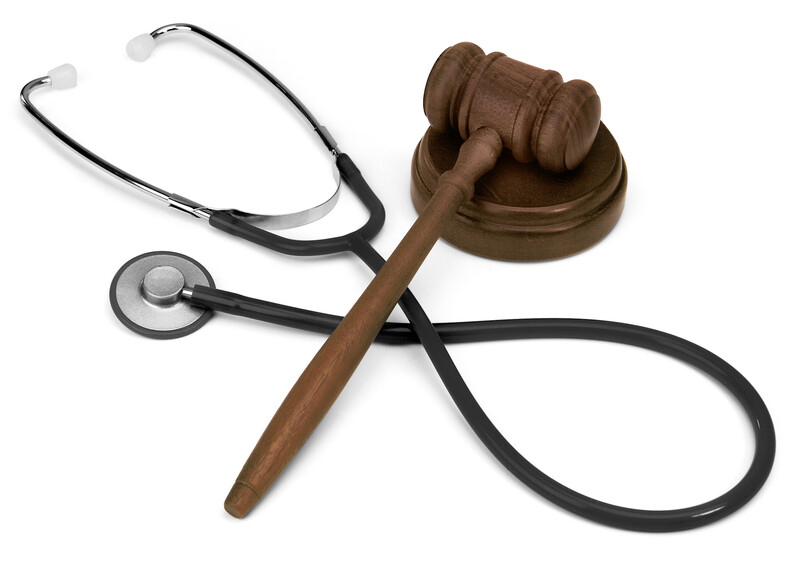The discovery deposition of the defendant physician is a very important proceeding in a medical malpractice case. A deposition is the oral testimony of a witness, and is an important component of the legal discovery process. Depositions are summarized with the support of medical review companies and the summaries are used by lawyers to prepare for trial. A deposition summary would contain an objective, accurate, and brief record of the main points of a lengthy deposition transcript. Typically, the transcript to deposition summary ratio is around 10:1, which means that attorneys can quickly read and understand the significant aspects of the case, saving a lot of time and valuable dollars.
For physicians and other clinicians, depositions can be quite stressful. There are thousands of medical malpractice cases filed every year in the U.S. and most of these involve depositions. Depositions can be taken from defendant healthcare providers, other healthcare staff, and medical experts.
Here are some deposition basics to understand.
- Attending the deposition is mandatory: A serious part of litigation, the participation of the witness being deposed is mandatory and not optional. The defendant physician has to give oral testimony under oath. The plaintiff’s attorney would ask a series of structured questions, which the defendant doctor has to answer. A court reporter would record the entire deposition process so that a transcript can be prepared later. Once the plaintiff’s attorney has completed his/her questioning, the defendant’s own attorney or attorneys representing other parties in the dispute (lawyers for the nursing home/hospital that are named in the lawsuit) may also ask questions.
- Understand what the patient’s attorney intends: The patient’s attorney will aim to commit the physician to a set of facts. He/she will also want to evaluate the strengths and weaknesses of the physician as a witness. If there are any changes in the testimony, attorneys can impeach a defendant before a jury. On the other hand, consistent testimony would work in the physician’s favor.
- Careful preparation and thorough awareness of all pertinent facts of the case are crucial: When attending a deposition, it is important to have complete knowledge regarding the facts of the case as well as that of other depositions that may already have been taken of other witnesses. Only then can one give clear and well-grounded answers to the questioners. Typically, the questioning would follow the chronological order of events, but it need not be so always. This is why the physician must be familiar with all aspects of the plaintiff’s medical records from the very beginning so that there is no confusion. The physician must also be able to identify all individuals present during or having knowledge of the patient’s treatment, including the name, current location, and how each person was involved in the treatment. The physician should be prepared to interpret his/her own handwriting besides all sections of the medical record relevant to the patient’s care at the time of his/her involvement. If the physician is unable to read a relevant consultation report or nursing notes during a deposition, it can have a negative impact. In the hands of skilled lawyers, depositions become a tool they can use to their advantage. Depositions often decide the outcome of a case, which makes proper preparation very important.
- Have a full understanding of the complaint filed against you: Physicians charged with malpractice must read the original complaint served on them and understand what all allegations have been made by the patient. This will help with proper preparation and also enable effective performance and responses during the deposition. Also, have a clear view of the defense positions you and your attorney will take, with the support of expert witness testimony, to disprove the allegations made by the patient. A good understanding of the exact allegations made and the various defenses that will be used during the trial will enable you to give a more effective deposition that will work in your favor.
- Rules of civil procedure: The rules pertaining to depositions are included under Rule 30 of the Federal Rules of Civil Procedure. Some states have similar procedural guidelines. Under these rules,
- Deponents have to be notified in writing; they should be informed as to the method of recording
- The number of depositions each side may conduct is limited
- The duration of a deposition is restricted, typically no more than 7 hours per day for each deponent
Rule 30 covers subpoena duces tecum that involves a request to produce physical evidence. The deponent may be requested to bring certain documents to the deposition. It is important to give your attorney copies of any document you plan to submit so that he/she can review them before the deposition. Only then can your lawyer better prepare you to face the deposition questions.
- Particular areas of inquiry: The two broad categories of inquiry at a deposition are – personal and professional background; and the care and treatment of the patient/plaintiff. Background questions may be asked regarding the following:
- Personal details and professional practice
- Education (formal as well as continuing education)
- Licensure
- Board certification
- Teaching responsibilities
- Hospital affiliations
- Publications and research
- Professional associations and affiliations
- Experience with the medical condition and treatment that is being contended
- Other lawsuits or claims involved in
- Medical record analysis is indispensable: The medical record is the single important basis for a malpractice case. As the treating physician, you must be familiar with each aspect of the documented treatment. A thorough review of the relevant medical records will strengthen your ability to explain everything that was done and why the particular treatment or care was provided.
Depositions are very important in medical malpractice as well as other types of lawsuits. Deposition outcomes may even decide the case before the trial. Ninety percent of malpractice cases are settled before trial, and often the deposition is the defining moment. Since proper understanding and preparation are essential on the part of the defendant physician, medical malpractice attorneys will focus on providing them the right instructions for the same. Since a deposition testimony is as serious as a court trial, the deposition summary preparation must also be very carefully done, preferably utilizing medical records services. Only then can the attorney put it to good use for the trial. The deposing physician must carefully review his/her deposition transcript and make necessary changes so that their answers are accurately conveyed. A successful deposition will help physicians reduce the pressure associated with defending their professional capability, and also avoid the expense, time, and tension involved if the case goes to trial.




